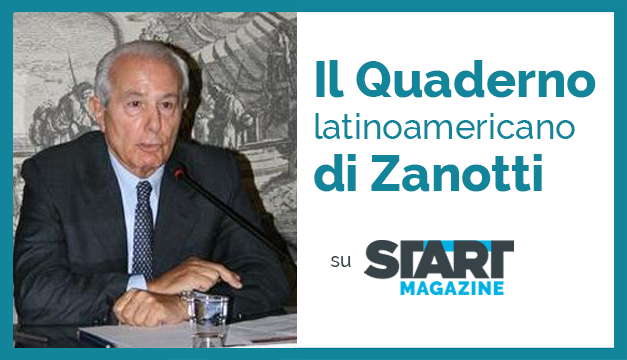Because the agreement with the IMF to prevent the default splits Argentina apart

The Argentine government avoids default, but the agreement with the International Monetary Fund creates a crisis within Peronism. The study by Livio Zanotti, author of ildiavolonmuoremai
Relations between Argentina and all of Latin America with the International Monetary Fund have historically been problematic to incandescent. Basically, the left and nationalist movementism in all its many forms see the IMF as the financial arm of imperialist domination. The decisive role that the United States plays in it since its foundation in the second post-war period as principal shareholders of the largest multinational credit institution in the world, constitutes clear confirmation in their eyes. Although the Fund's image and real practice have evolved in the past decades, but especially in the very last few years, the popular imagination but also the Latin American political one have not erased the stigma of usury. In Argentina, not even today's narrow escape from a new default has done so.
This brief memory is appropriate in order to understand the double political, financial and opinion shock produced in sequence around the last weekend in Argentina, from the sudden news of the agreement reached by the current government of President Alberto Fernandez (Peronist ) and by the IMF, on the payment of the extraordinary debt contracted in the second half of 2018 by the then government of Mauricio Macri (neo-liberal). This is the largest credit ever granted by the Fund (55 thousand million dollars in the Stand-by formula), which has disbursed 44 thousand million in a very short time, completely unusual. The conditions of the debt, immediately considered priceless by almost all the most authoritative economists in the United States and Argentina, caused enormous scandal. Embittered by the commonly believed rumor that it was the intervention of Donald Trump, a family friend and former business partner of the Argentine President Macri's family, that made it possible. But above all in turn pressed by the big Wall Street funds that were losing millions in the Argentine crisis and looking for a way of retreat.
Not without some good legal argument, the debt was declared illegitimate by the then Peronist opposition, which made it an electoral banner for the victorious campaign that led Alberto Fernandez and his vicar, the former president Cristina Kirchner, and their Frente coalition. de Todos at the Casa Rosada. It is therefore easy to understand the absence of any triumphal tone in the announcement by the head of state of the agreement that came after a grueling negotiation, in which Argentina has obtained undeniable improvements in numbers and in payment times. Essentially avoiding the traditional recipe of the Fund: the immediate and drastic reduction of the budget deficit (today just above 5%), which would have implied a dramatic cut in social spending and in the investments necessary for the recovery of production and employment. after the devastation of the 23 months of COVID.
The restructuring of the debt, however, obviously passes through its recognition, which would even be reduced in proportion to the extension of the times (of the total outstanding, the first installment would slip to 2024, as would the reduction of the budget deficit). However, Argentina undertakes to pay. And a breach of the Fund can lead to the ostracism of public and private international banking, at least of the Western one, of which, for better or worse, the great South American country is a part, to the point of being a member of the IMF. An exporting economy cannot afford it. Neither the trip that President Alberto is preparing to make to China and Russia, even when he opens up further additional sources of credit, will not be able to offer alternative solutions as immediate as for the foreseeable future. Its objectives are essentially commercial in nature.
By practice as well as by law, once the agreement with the IMF is formally defined, it will have to be ratified by the Buenos Aires Congress. This is why the resignation as leader of the ruling coalition in the Chamber of Deputies announced by Maximo Kirchner, the eldest son of the late President Nestor and of the former president and current Vice Cristina, has caused the head of state a certain embarrassment. It could be the paradox that the opposition approves it and some government officials reject it. In the official letter of resignation, Maximo recalls that he openly disagreed with the opening of a negotiation with the Fund, which he now defines as lacking the necessary determination and courage. In order not to involve his mother (herself notoriously against it), Maximo writes that she tried to dissuade him, as did the President himself. The fact is that the stock market and the parity of the national currency, the peso, immediately suffered a backlash.
As in any coalition government, the leader must exercise a synthesis that does not deviate excessively from the positions of all its components. In this case, the party of Maximo and Cristina, Campora, is in all likelihood the number one factor, both for the intensity of the militancy and for the electoral contribution. If the expressed opposition of Maximo and the tacit but well-known one of the vice-president do not conceal any occult design, they will end up feeding the usual and often turbulent internal dialectic. This must be the conviction or at least the hope of Alberto Fernandez. Otherwise a period of particular difficulty and incalculable risks would open for the country and for him. Neither Cristina nor her son have in fact indicated complete and reasonably practicable alternatives to the agreement signed with the Fund, which undoubtedly entails its burdens.
This is a machine translation from Italian language of a post published on Start Magazine at the URL https://www.startmag.it/mondo/argentina-fondo-monetario-internazionale-default/ on Wed, 02 Feb 2022 06:47:54 +0000.
